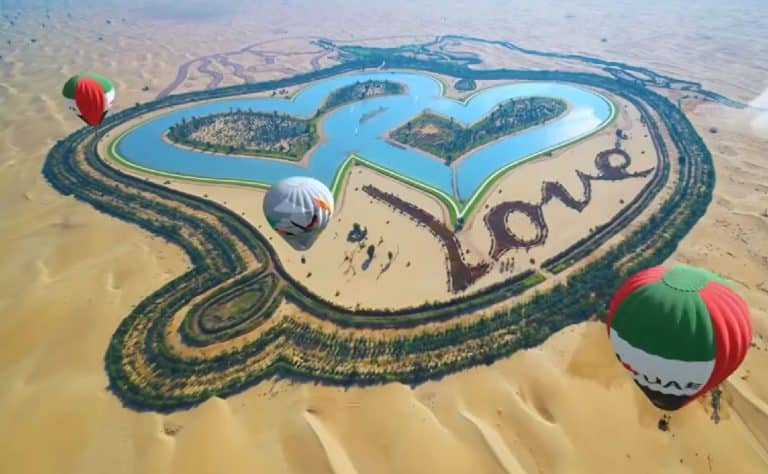The UAE tourism sector reached a historic milestone in 2024, contributing approximately $70.1 billion to the national Gross Domestic Product (GDP). This remarkable achievement accounts for 13% of the country’s total economy, reflecting a 3.2% increase from 2023 and a 26% rise compared to pre-pandemic levels in 2019. The growth highlights the resilience of the tourism industry and its vital role in the UAE’s economic diversification strategy.
Strategic Investments Driving Growth
The UAE’s tourism success is largely driven by significant investments in infrastructure and strategic initiatives designed to enhance the visitor experience. Airports, luxury hotels, and entertainment venues have seen continuous development, positioning the UAE as a leading global tourism destination. Additionally, initiatives such as a unified Gulf Cooperation Council (GCC) tourist visa have made travel within the region easier, boosting the inflow of international tourists.
Diverse Tourism Offerings
The UAE offers a wide range of tourism experiences catering to leisure, business, and niche travelers. Cities like Dubai and Abu Dhabi are famous for their modern attractions, shopping, and entertainment, while places like Sharjah and Al Ain showcase cultural heritage and history. Emerging tourism segments, including wellness, adventure, and cultural tourism, have contributed to revenue growth. For instance, smaller emirates like Ras Al Khaimah have seen increased tourist activity, driven by investments in unique experiences and natural attractions.

Growth in International Visitor Spending
International visitor spending has been a key driver of the UAE’s tourism revenue. In 2024, total spending by international visitors reached around $58.9 billion, a 5.8% increase from 2023 and a 30% rise compared to 2019. This growth reflects the UAE’s strong reputation as a luxury and premium tourism destination, supported by global marketing campaigns and attractive packages for international travelers.
Performance of the Hotel Industry
The UAE’s hotel industry has seen significant growth alongside overall tourism expansion. Hotel revenues reached nearly $12 billion in 2024, while occupancy rates climbed to 78%, among the highest in the region. The number of hotel guests reached approximately 30.7 million, achieving 77% of the national target of 40 million annual visitors. Investments in high-end accommodations, resorts, and boutique hotels have been crucial in attracting both leisure and business tourists.

Role of the Aviation Sector
The aviation sector has played a crucial role in supporting tourism growth. UAE airports have handled more than one billion passengers from 2015 to 2024. In the first eight months of 2025 alone, airports recorded nearly 103 million passengers, representing a 5.3% increase from the previous year. The expansion of air connectivity, including international and regional flights, has strengthened the UAE’s position as a global travel hub.

Employment and Economic Impact
Tourism has become an important source of employment in the UAE, supporting nearly one in eight jobs in the country. In 2024, more than 898,600 people were employed in tourism-related industries. The sector’s growth has had a positive spillover effect on other areas of the economy, including construction, hospitality, retail, and transportation. Overall, the UAE’s GDP is projected to grow by 4% in 2024, with tourism playing a central role in sustaining this momentum.
Cultural and Event Tourism
The UAE has also leveraged cultural and event tourism to attract visitors. International events, exhibitions, and festivals have become major draws, complementing the country’s luxury tourism offerings. Cities like Dubai host large-scale events such as trade shows, art exhibitions, and sporting tournaments, while cultural destinations promote heritage, museums, and traditional markets. This combination of modern and cultural tourism creates a diverse experience for visitors, encouraging longer stays and increased spending.
Tourism Sustainability Initiatives
Sustainability has become a focus for the UAE’s tourism sector, aligning with global standards and trends. Hotels, resorts, and attractions have incorporated eco-friendly practices, such as energy-efficient operations, water conservation, and waste management programs. These initiatives appeal to environmentally conscious travelers and enhance the country’s reputation as a responsible and forward-thinking destination.
Future Outlook
The outlook for UAE tourism remains positive, with projections indicating that the sector could contribute AED 450 billion to the GDP by 2031. Continued investment in infrastructure, marketing, and niche tourism segments will support this growth. Moreover, the UAE government’s focus on economic diversification, innovation, and global tourism partnerships ensures that the sector will remain a key driver of the national economy.
Tourism development plans include new entertainment districts, theme parks, cultural projects, and luxury accommodations. Expansion in air connectivity, visa facilitation, and marketing campaigns targeting emerging markets will further increase the number of international visitors. These efforts are designed to make the UAE one of the top global tourism destinations over the next decade.
Conclusion
The UAE tourism sector has achieved record growth in 2024, contributing $70.1 billion to GDP and cementing its role as a major economic driver. Through strategic investments, diverse tourism offerings, robust hotel and aviation infrastructure, and sustainability initiatives, the UAE has strengthened its position as a global leader in tourism. As the sector continues to evolve, it will remain a cornerstone of the nation’s economic strategy and a testament to the UAE’s vision for sustainable growth and diversification.
Do follow UAE Stories on Instagram
Read Next – Net-Zero Mosque in Abu Dhabi: A Fusion of Tradition and Sustainability















